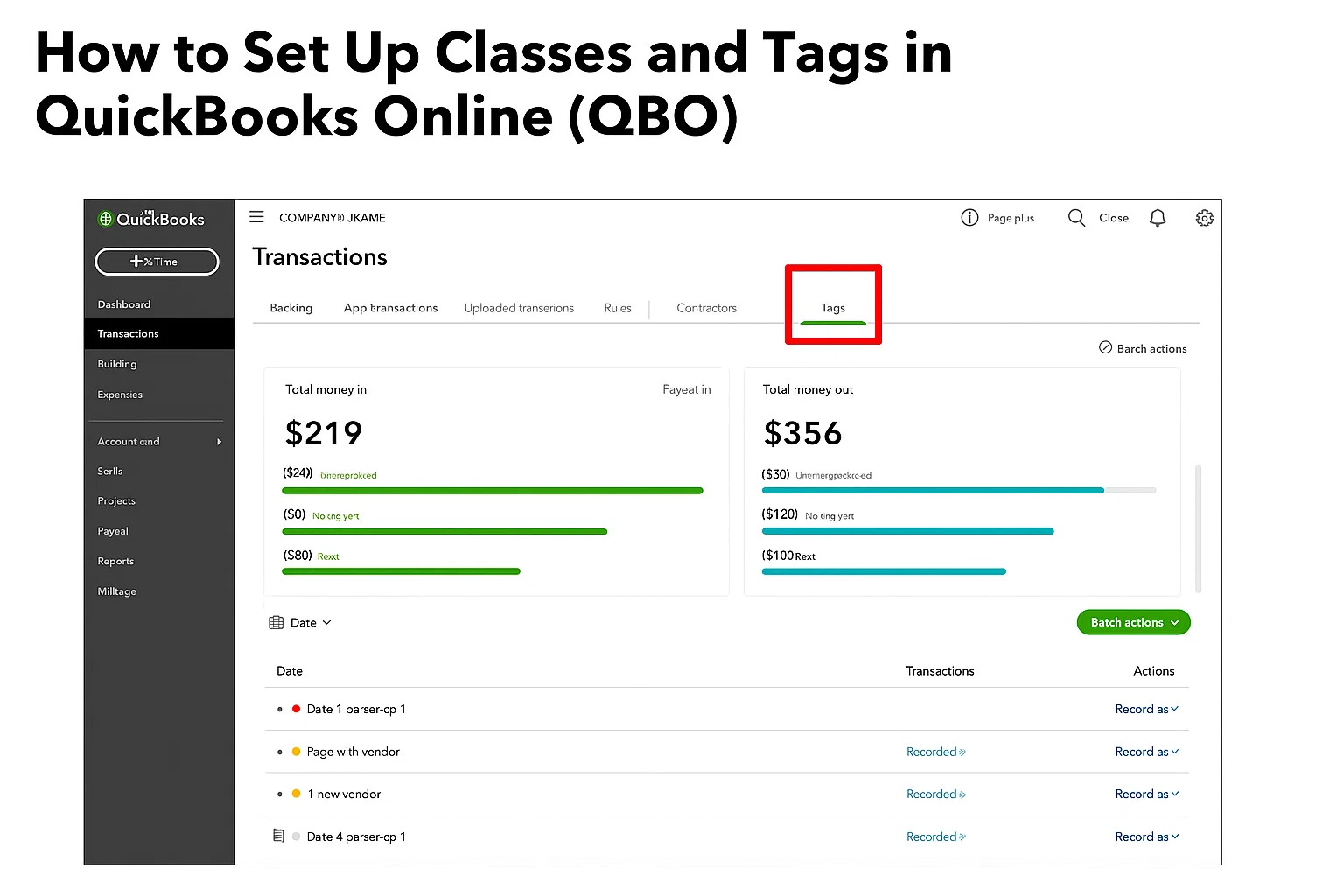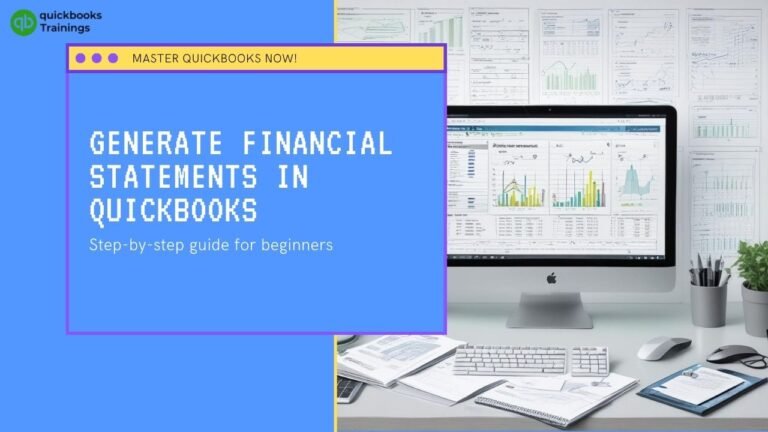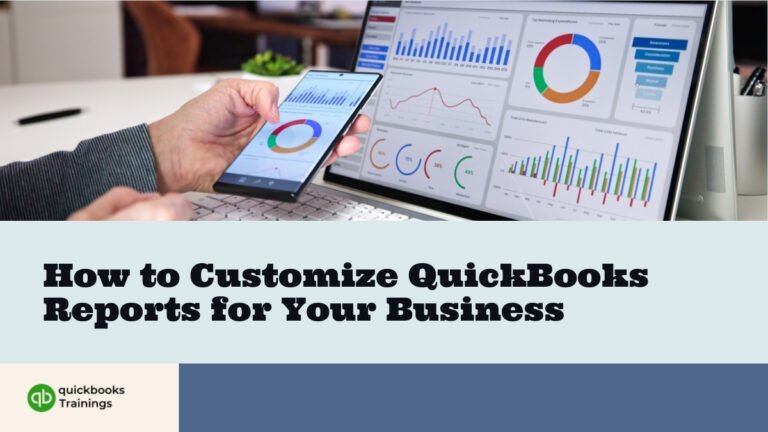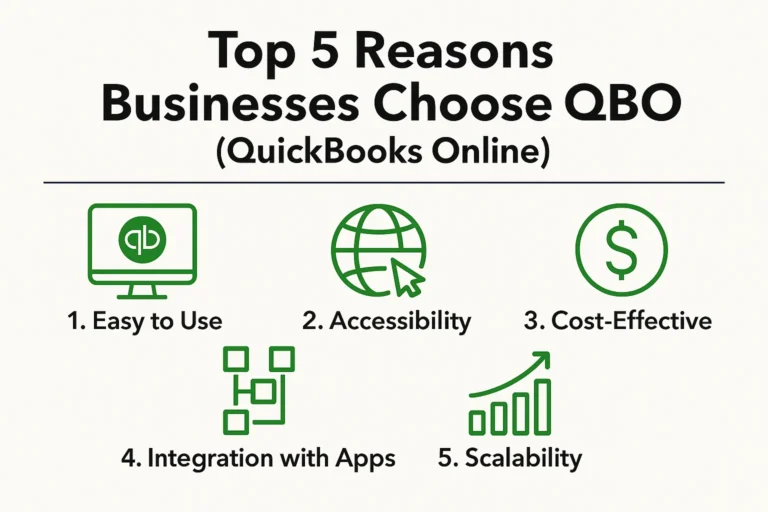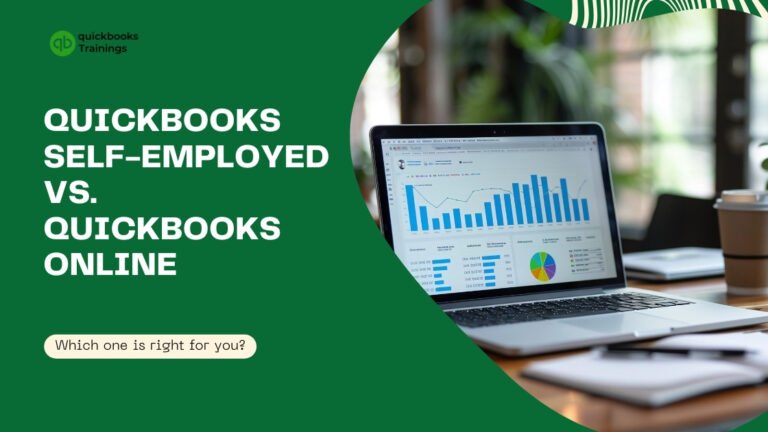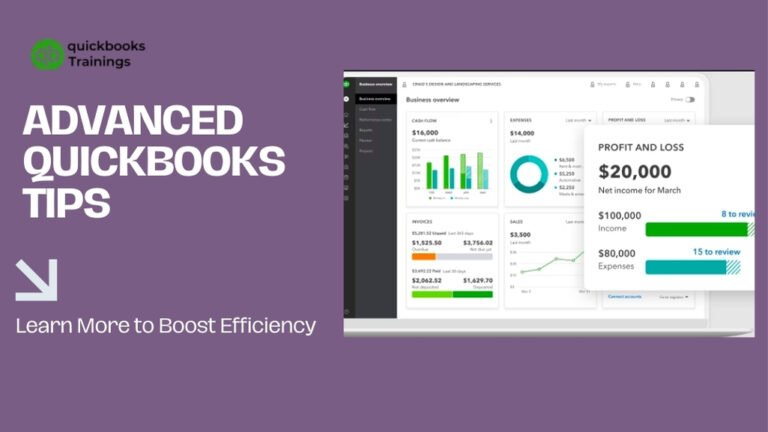How to Set Up Classes and Tags in QuickBooks Online (QBO)
Organize your business finances with precision! Learn how to set up and use Classes and Tags in QuickBooks Online better to track performance across departments, projects, or campaigns.
✅ What Are Classes and Tags in QuickBooks?
Classes and Tags are part of QuickBooks Online’s powerful tracking tools.
- Use Classes to divide your business into departments, regions, or product lines.
- Use Tags for flexible, keyword-style labeling, such as campaign names, events, or clients.
Do you need an overview of how QuickBooks works first? Please read this guide to learn about QuickBooks and how it works.
🎯 Why Use Classes and Tags?
These tools help you:
- Track profitability across multiple business segments
- Label and group transactions for custom reporting
- Optimize your small business accounting setup
- ➤ Learn how to manage small business accounting in 7 steps
🛠️ Step-by-Step: How to Turn On Class and Tag Tracking in QBO
Enable them first through ⚙ Settings > Advanced > Categories.
Want help setting up your QuickBooks properly from the beginning? Please explore our complete QuickBooks training program.
📘 How to Create Classes in QuickBooks Online
After turning on Class tracking:
- Navigate to Gear > All Lists > Classes
- Click New, name your class, and save
Pro Tip: We walk you through this in our 2-Day QuickBooks Class, using real-life business examples.
📋 How to Create and Use Tags in QuickBooks Online
Tags are ideal for small businesses and freelancers.
➤ Learn how to use QuickBooks for small business accounting
- Go to Banking > Tags
- Create a Tag Group (e.g., “Campaigns”)
- Add individual tags like “Holiday Promo” or “Client A”
Want a complete walkthrough of QBO’s latest features? Check out our Top 10 QuickBooks Online Features article.
🔄 Key Differences Between Classes and Tags
| Feature | Classes | Tags |
|---|
| Financial Reports | ✅ | ❌ (limited) |
| Hierarchies | ✅ | ❌ |
| Multiple per transaction | ❌ | ✅ |
For more feature breakdowns: Compare QuickBooks Self-Employed vs. QuickBooks Online
⚡ Best Practices for Using Classes and Tags
- Use Classes for accounting purposes; Tags for flexible internal use
- Keep naming conventions clear and consistent
- Don’t overuse Tags—it can clutter your reports
📌 Avoid these 12 common QuickBooks Online mistakes
📊 Reports You Can Run With Classes & Tags
- Profit and Loss by Class
- Transaction List by Tag Group
- Unclassified Transactions Report
➤ Want to create powerful financial statements? Here’s how
💡 Common Mistakes to Avoid
- Turning on Classes but never assigning them
- Creating vague Tags (e.g., “misc” or “other”)
- Confusing Classes with Customers/Projects
Need a cleanup? Check out our Post-Training Support options.
👩🏫 Need Help? Learn From Certified QuickBooks Experts
At QuickBooksTrainings.com, we help business owners, real estate professionals, and e-commerce sellers:
- Learn QuickBooks from scratch
- Customize your setup using Classes and Tags
- Use features like automation and custom reports
- ➤ View our QuickBooks for eCommerce Businesses course
- ➤ Real estate agent? See our targeted course
📅 Compare plans and pricing here
🎥 Explore our QuickBooks Online training options
❓ FAQs: How to Set Up Classes and Tags in QuickBooks Online (QBO)
A: Use Classes for departments or product lines. Use Tags for temporary tracking, like events or campaigns.
A: Yes! You can assign one Class and multiple Tags to a transaction.
A: Yes—Profit and Loss by Class is one of the most powerful reports in QBO.
